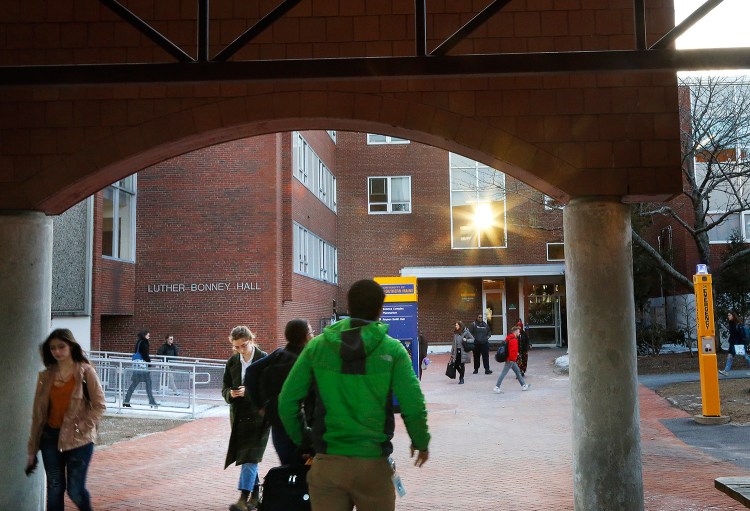In 1937, the Maine Legislature passed a law that prohibited “any person to sell, distribute, vend or otherwise dispose of any drug, medicine or pharmaceutical or medical preparation by means of any public exhibition, entertainment performance or carnival common known as a medicine show or patent medicine show.”
In 1963, the act was amended to change the word “vend” to “vending machine.”
Fifty-six years later, it’s time to change the law again.
Rep. Maureen Fitzgerald Terry, D-Gorham, has sponsored a bill, L.D. 37, that would permit the sale of over-the-counter medication by vending machines. Lawmakers should pass this bill and take this antiquated restriction off the books.
It won’t be easy, however. The bill has been targeted for lobbying by anti-abortion rights groups, with advocates complaining that changing the law would make emergency contraception – often known as “Plan B” or the morning-after pill– more available.
ACCESS ON CAMPUS
They are not wrong. It’s exactly the medicine that University of Southern Maine student Emma Donnelly had in mind when she first proposed having campus vending machines stocked with emergency contraceptives so they’d be available when they are needed. (She later heard from students and faculty who wish they could get other kinds of over-the-counter medicines at odd hours.) University health officials initially welcomed the idea but later found that it was not permissible under the state’s Safe Pharmacy Act, which began as the original 1937 medicine-show law.
Back then lawmakers could not have foreseen the growth of the federal Food and Drug Administration, and the prominent role it has taken in testing medicines for their safety.
The FDA has determined that emergency contraception falls into the same category as pain relievers and antihistamines, which can all be sold without a prescription. Over-the-counter medications – including the morning-after pill – have been determined to be safe when used as directed, and are sold not only at pharmacies, but also at grocery stores, gas stations and mini-marts, without any direct counseling from knowledgeable vendors required.
TIME MATTERS
Donnelly presented the committee with stories of students, including rape victims, who had to struggle to get hold of the medicine when campus health centers were not open. Opponents made clear in their testimony that their issue is not with vending machines, but with contraception itself. Penny Morell of the Maine chapter of Concerned Women for America said the group “has always opposed the unrestricted sales of the ‘Plan B’ morning-after pill. We have feared for the future health and wellness of women and children, as doctors, parents and pharmacists are eliminated from this very serious conversation about sexual activity, pregnancy, fertility and overall health.”
But that battle has already been fought.
If Concerned Women for America wants to revisit the debate, the place to do it is not the Maine Legislature – it’s in Washington. With FDA approval, the morning-after pill is supposed to be available to the people who need it, and there is no reason that Maine should arbitrarily limit that access to normal business hours. Continuing the vending machine ban only creates burdens for people who want to exercise their rights.
The medicine shows are gone and they are not coming back. It’s time to update the law.
Send questions/comments to the editors.



Comments are no longer available on this story